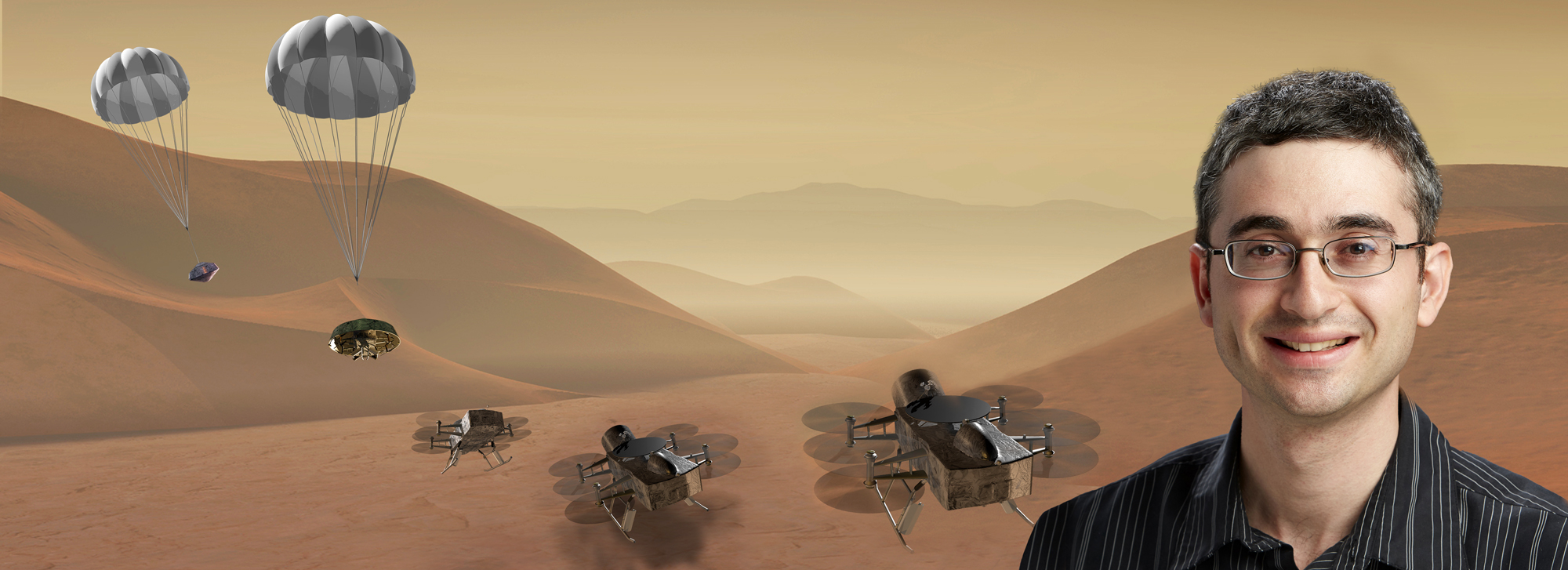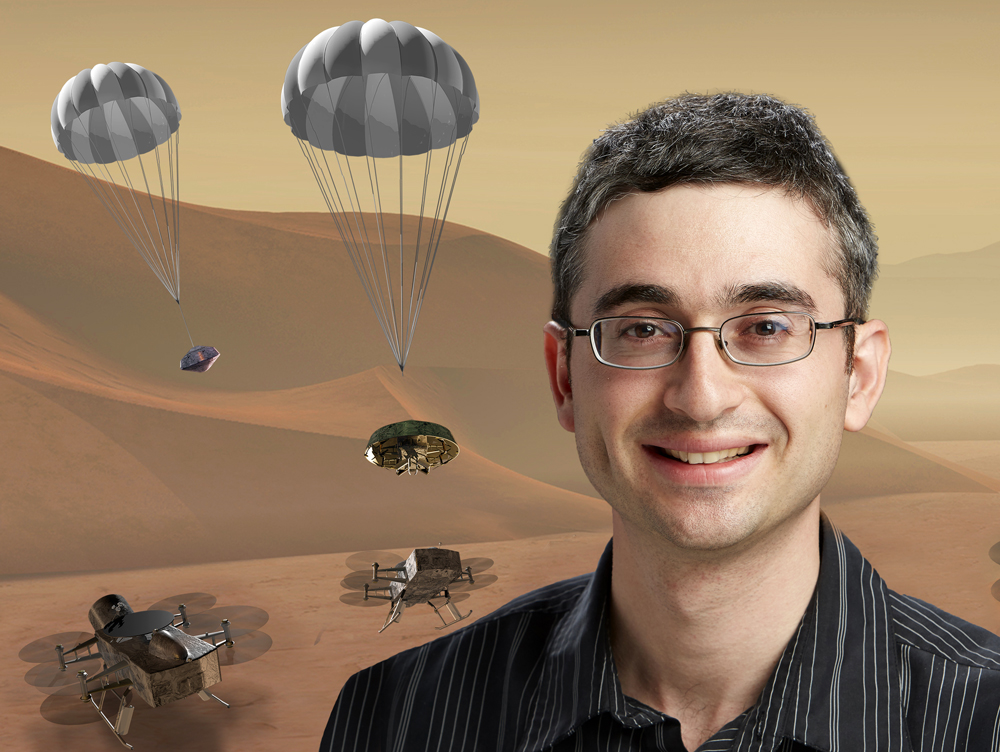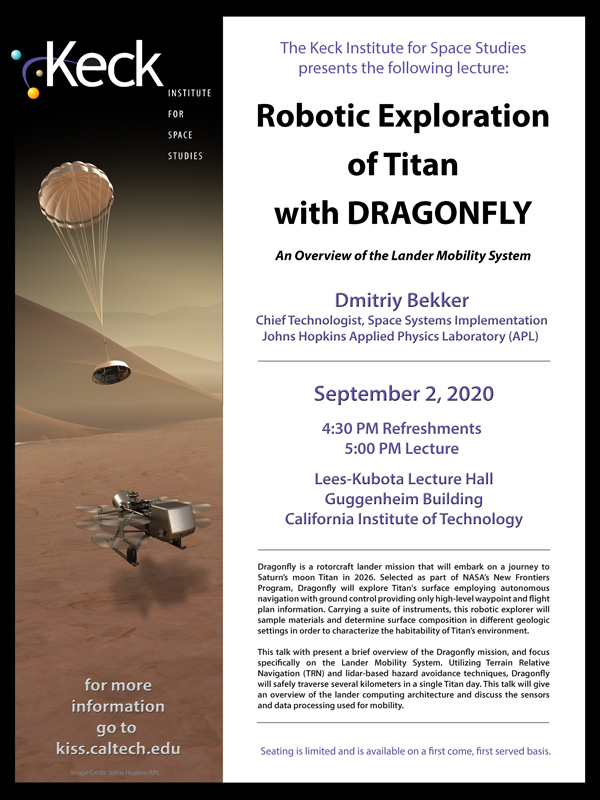

Robotic Exploration of Titan with Dragonfly - An Overview of the Lander Mobility System
Dmitriy Bekker - Johns Hopkins Applied Physics Laboratory
September 2, 2020
5:00 P.M. Lecture
4:30 P.M. Reception
Lees-Kubota Lecture Hall - Guggenheim Building, California Institute of Technology
Lecture Map
Seating is limited and is available on a first come, first served basis.
Abstract:
Dragonfly is a rotorcraft lander mission that will embark on a journey to Saturn’s moon Titan in 2026. Selected as part of NASA’s New Frontiers Program, Dragonfly will explore Titan's surface employing autonomous navigation with ground control providing only high-level waypoint and flight plan information. Carrying a suite of instruments, this robotic explorer will sample materials and determine surface composition in different geologic settings in order to characterize the habitability of Titan’s environment.
This talk with present a brief overview of the Dragonfly mission, and focus specifically on the Lander Mobility System. Utilizing Terrain Relative Navigation (TRN) and lidar-based hazard avoidance techniques, Dragonfly will safely traverse several kilometers in a single Titan day. Achieving this level of mobility requires on-board processing accelerated by a dedicated Navigation Co-Processor (NCP) working in conjunction with the flight computer. This talk will give an overview of the lander computing architecture and discuss the sensors and data processing used for mobility.
Speaker's Biography:
Dmitriy Bekker is Chief Technologist of the Space Systems Implementation Branch at the Johns Hopkins Applied Physics Laboratory (APL) and supervisor of the Processing Architectures and Algorithms Section. He is the Image Processing FPGA Lead on NASA’s Double Asteroid Redirection Test (DART) mission and the Computer Vision Architecture Lead for Dragonfly. Dmitriy’s area of expertise is hardware/software engineering with a focus on spacecraft on-board processing, embedded machine learning, FPGAs, digital signal processing, and computer architecture. He received his B.S. and M.S. degrees in Computer Engineering from Rochester Institute of Technology in 2007. Prior to joining APL, Dmitriy worked at NRL, JPL, and Draper.
